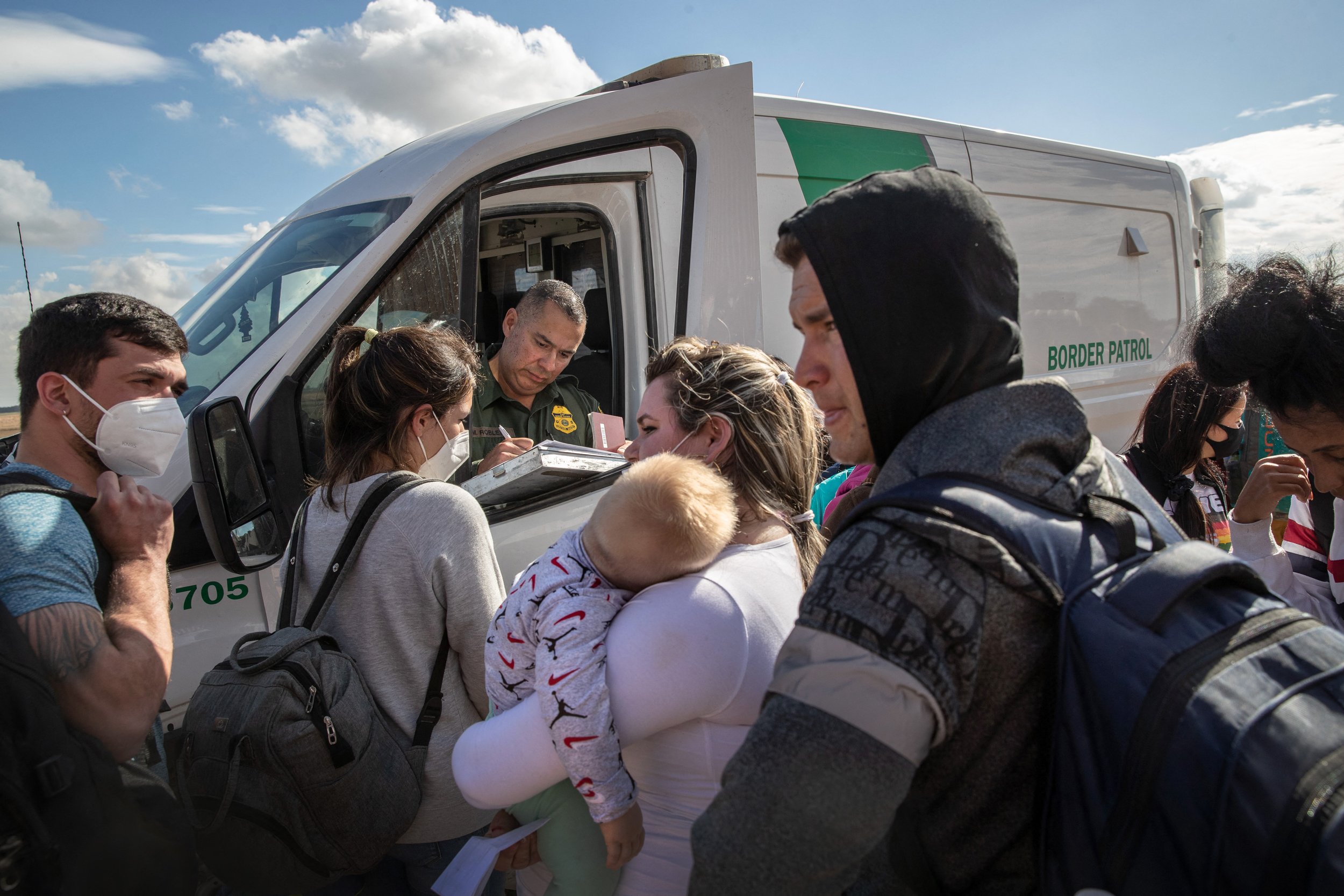U.S. Policing is a Global Problem
Riot police stand at the U.S. Capitol, Jan. 6, 2021 [Reuters/Jim Bourg]
Violent policing is a hundreds-year-old U.S. tradition – it has also been one of America’s most important exports.
When the chaos at the Capitol unfolded earlier this month, some people were startled to learn that several off-duty police officers and members of the armed forces were among the rioters. Observers decried the difference between how the rioters were treated, and how left-wing protesters for racial justice and climate action had been treated in the past. As the story unfolded, though, one cause for the disparity became clear: The white rioters and the law were, in many cases, one and the same.
As we saw with the protests this summer, the police at the Capitol did not enforce the law on the books, but instead seemed more intent on enforcing a seemingly higher law of white supremacy and repression of the left.
This is, of course, perfectly consistent with U.S. history and the history of American policing. But we often don’t discuss U.S. policing as a global phenomenon.
In the wake of the Capitol riot, some reporters compared the scene to a “third world” event or something one would see in a Banana Republic. But Banana Republics are actually an American-made phenomenon.
The term was invented by American short story writer O. Henry (the pen name of William Sydney Porter) in 1904 to describe Honduras, which had fallen under the sway of U.S. fruit companies that would go on to dominate Central American politics through bribery, violence and control of infrastructure.
These countries experienced anti-democratic violence, of course, but it was not merely homegrown: The United Fruit Company, as detailed here by NPR, “worked with its allies in Washington and overseas to secure its interests throughout Latin America. In 1928, this entailed a sordid role in the massacre of hundreds of striking banana workers in Colombia. In Guatemala in 1954, it involved the CIA-orchestrated overthrow of a democratic government seeking to nationalize and redistribute some of the company’s enormous landholdings. And in 1961, United Fruit ships sailed to Cuba’s Bay of Pigs as part of the U.S. effort to depose Fidel Castro’s government.”
Put another way, many of the tactics used to suppress brown and Black people overseas were informed by policing in the U.S. (where labor wars raged during this time period), and vice versa. And American policing overseas was committed to protecting right-wing power as a means of protecting American business interests and Cold War prerogatives. Greece is one example of this.
A few years ago, in the wake of the 2008 debt crisis, I was reporting in Athens on austerity measures in the country and the (then rising) left.
Many people I spoke to were concerned about the increasing power of the radical fascist right in the country, embodied by Golden Dawn, a murderously anti-immigrant Nazi party.
Golden Dawn was very popular among the Greek police; in fact, similar to the U.S., Greek law enforcement and right-wing groups in the country have been intimately connected for years. (In 1963, the murder of a famous politician and peace activist, Grigoris Lambrakis, put this relationship on full display. It was also the basis for a famous political thriller by Greek filmmaker Costa-Gavras called Z.)
But, as it turned out, there’s an even more direct link between American and Greek policing.
In the wake of WWII, in order to repress Greek communists, the U.S. (mostly through USAID) intervened to strengthen the right in the country. One way they did this was by working with the police, who could be counted on to suppress the left. American police advisers arrived in Greece in 1957, where they helped structure police departments and provided lavish funding.
They also offered training on American soil. According to historian Mark Mazower, “Greek police officers were sent to the U.S. for training in the ‘development of technical and special services’ and attended the infamous International Police Academy, whose distinguished alumni also included leaders of the El Salvador and Guatemalan death squads.” An 11-hour flight from home, I realized I could look around the cobbled streets of Athens and see the legacy of American policing.
The result of these efforts, as we’ve seen, is a world influenced by American-style law enforcement tactics and repression (for a brilliant interrogation of these policies, check out Costa-Gavras’ film State of Siege).
Americans who are worried about the connection between right-wing forces and the police are thinking about these global connections. If American policing is global, so are the movements that reject it.
When Black Lives Matter protests exploded in the U.S., solidarity demonstrations took place all over the world, from Greece to Mexico City to Idlib. In Bogota, Colombia, protesters demonstrated in June with multiple demands: justice for George Floyd, justice for Anderson Arboleda (a young Black Colombian killed by police), and American troops out of Colombia. An American unit was being sent to “advise” on narco trafficking; they have since arrived.

![Riot police stand at the U.S. Capitol, Jan. 6, 2021 [Reuters/Jim Bourg]](https://images.squarespace-cdn.com/content/v1/5f21dbb91adde3260d4ba1ef/1611876055463-U12B10JB5NYB5OQY0C53/capitol-riots-global.jpg)



